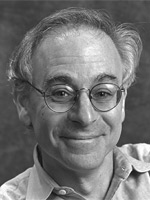Robert C. Post, one of the nation's leading authorities on the concept of academic freedom, is scheduled to speak May 14 at the 2007 Academic Senate Committee on Academic Freedom Lecture.
The lecture, "The Origins and Politics of Academic Freedom," is free and open to the public. It begins at 7 p.m. at the UCSC Music Center Recital Hall.
Post, the David Boies Professor of Law at Yale Law School, will address what academic freedom means in a post 9/11 United States. Post writes that academic freedom, once regarded as faintly subversive, has come to be regarded as "right" on campuses. It is not a First Amendment right, Post argues, calling it instead a professional privilege and responsibility. He poses the question: "Is that principle in jeopardy?"
In "The Structure of Academic Freedom" published in Academic Freedom after September 11, Post writes, "we have grown soft and complacent. We have come all too easily to assume academic freedom as our 'God-given right' and have become oblivious to its distinct justifications and limitations."
Post is a scholar on First Amendment law. His academic focus at Yale Law School is on Constitutional law, the First Amendment, and affirmative action. Earlier he taught at UC Berkeley's Boalt Hall School of Law from 1983 to 2003 where he was a key participant in the 2003 revision of the University of California's official policy on academic freedom.
Post received his B.A. and Ph.D. degrees from Harvard University and a law degree from Yale Law School. He is coeditor of Civil Society and Government, published in 2004.
His talk is cosponsored by the Committee on Academic Freedom; the Office of the Chancellor; Cowell, Kresge, Merrill and Stevenson Colleges; American Studies, Community Studies, Feminist Studies, History, History of Consciousness, Legal Studies, Literature, Politics, Psychology, and Sociology Departments; and the Institute for Humanities Research.
Additional information may be found from the Committee on Academic Freedom



